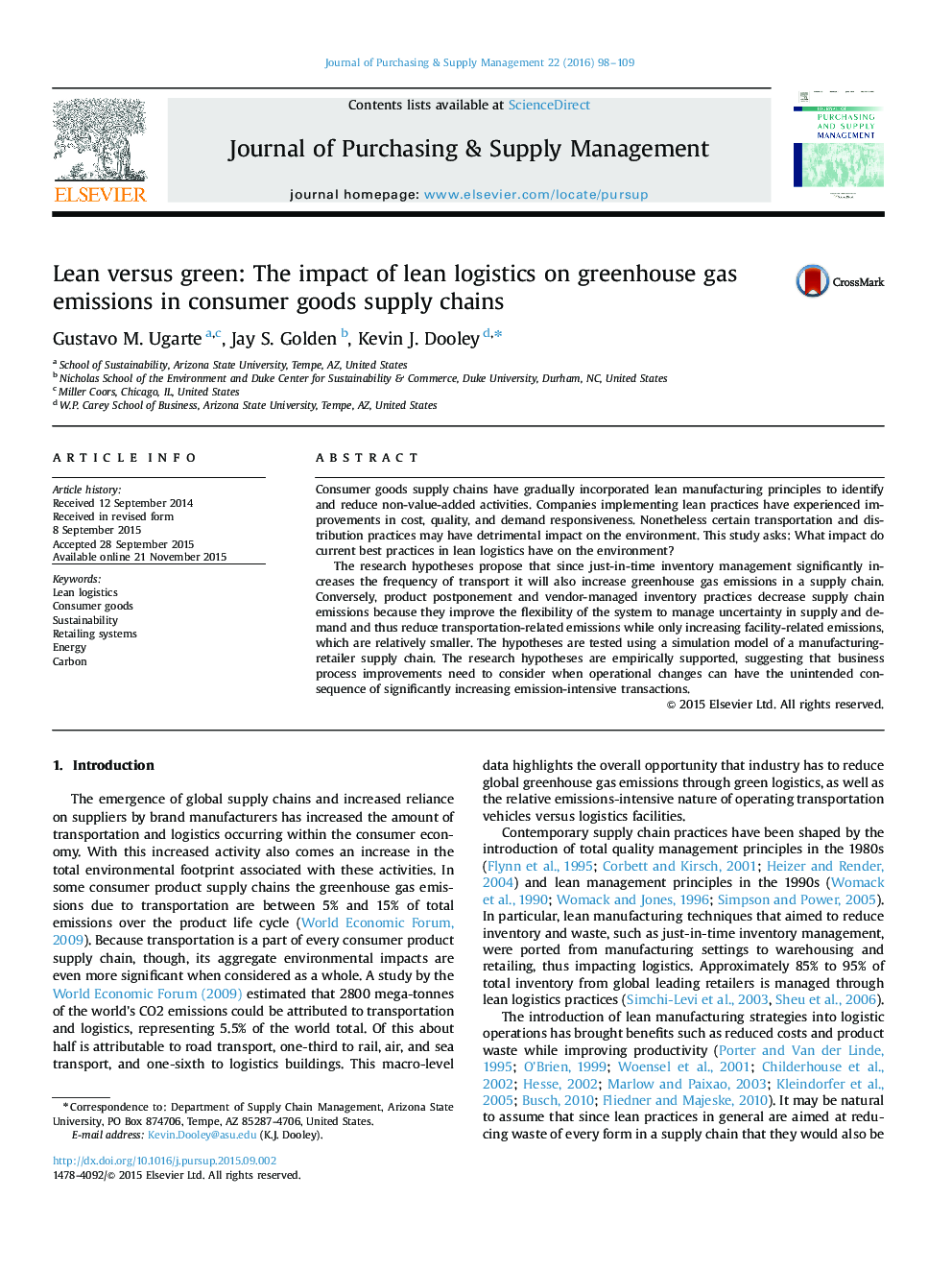| Article ID | Journal | Published Year | Pages | File Type |
|---|---|---|---|---|
| 1020717 | Journal of Purchasing and Supply Management | 2016 | 12 Pages |
•Investigated the empirical impacts of three lean logistic practices.•Simulation showed significant statistical differences across practices.•GHG emissions associated with postponement, VMI, and JIT under some conditions.•Product postponement reduces emissions through improving productivity via flexibility.
Consumer goods supply chains have gradually incorporated lean manufacturing principles to identify and reduce non-value-added activities. Companies implementing lean practices have experienced improvements in cost, quality, and demand responsiveness. Nonetheless certain transportation and distribution practices may have detrimental impact on the environment. This study asks: What impact do current best practices in lean logistics have on the environment?The research hypotheses propose that since just-in-time inventory management significantly increases the frequency of transport it will also increase greenhouse gas emissions in a supply chain. Conversely, product postponement and vendor-managed inventory practices decrease supply chain emissions because they improve the flexibility of the system to manage uncertainty in supply and demand and thus reduce transportation-related emissions while only increasing facility-related emissions, which are relatively smaller. The hypotheses are tested using a simulation model of a manufacturing-retailer supply chain. The research hypotheses are empirically supported, suggesting that business process improvements need to consider when operational changes can have the unintended consequence of significantly increasing emission-intensive transactions.
